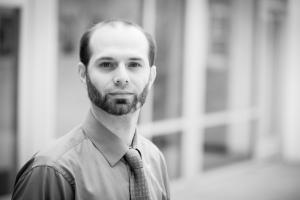When JFS hosted a reading by local poet Esther Altshul Helfgott last fall, she closed the event by asking audience members to write something from their own lives. I was inspired by the notion that we can become the scribes of our lives and the lives of our loved ones. This got me thinking about how writing might be a meaningful tool to process many of the different life situations we encounter.
Writing the life of a beloved elder.
When my mother and I first came to the US, we stayed with my great-grandmother Malka. Grandma was just as secular as the rest of us back in the USSR, but after 10 years in Brooklyn she became something of a family expert on candles, prayers and holiday meals. I wish I would have taken the time to write down what this transformation was like for her. Some questions I wish I had asked:
- When you lived in Moscow, did you know there was so much to being Jewish?
- How difficult was it to learn all of this from scratch?
- Can you teach me some of it?
Is there a beloved elder in your life that you could get to know better through writing? What would you ask them?
Writing through a life transition.
Leaving the USSR was a challenging time for me and my mom. We had each other, but we didn’t have much else. In the years that followed, we went through our share of ups and downs on the way to becoming Americans. Certainly we have talked about this momentous journey, but we never stopped to put any of it down on paper. With hindsight, these are the things I wish we had documented:
- Our first American jobs
- Getting our Green Cards and naturalization
- The challenges and advantages of becoming bilingual
Are you going through a life transition that could be made less overwhelming through writing?
Perhaps, you would be more comfortable reading about how others became their own scribes before getting started for yourself? Here are a couple of books that could have inspired me to write more (and maybe will, soon):
Speak, Memory
Vladimir Nabokov describes his immigration and acculturation experience in this autobiography.
The Thing about Life Is That One Day You’ll be Dead
David Shields reflects on his father’s and his own mortality.
 By Leonid Orlov
By Leonid Orlov
Leonid Orlov works in the Family Life Education department. In addition to meeting with authors and writing emails all day, he coordinates psychoeducational events on a variety of lifespan topics. Leonid has a Master’s in counseling and is a published qualitative researcher. He enjoys spending time with his wife and son, even when not volunteering at his elementary school.
Feature image by Gracie Cannell.



